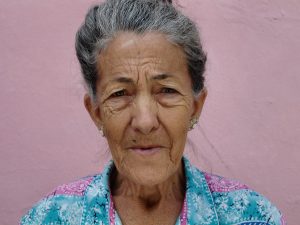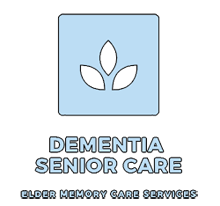Dementia Facilities Near Littleton CO, Senior Assisted Living * *
Senior Assisted Living Colorado, Dementia Facilities Littleton Near Me
 The Positive Aspects of Providing Care
The Positive Aspects of Providing Care
Dementia is the irreversible loss of intellectual capacities, including memory, the ability to express oneself and communicate adequately, to organize daily life, and to lead an autonomous family, work, and social life. It leads to a state of total dependence until the individual eventually passes away. Littleton.
It is a disease of the advanced ages of life, and it is all the more frequent the older people are, but there are early forms that begin at 50 or 60 years of age and although very rarely, even earlier.
The cause of this disease is unknown, although it is linked to genetic and hereditary factors as well as, cranial trauma, lack of cognitive stimulation, and others. Littleton Caregiver.
Unfortunately, to best draw out the positive aspects of providing care for an Alzheimer’s victim, we must first understand and learn to deal with the negatives. At least to the degree, we can identify and promote a progressively nurturing relationship with the victim while working through the negatives. That means we must begin by scrutinizing the hard facts, the reality of our own choices, our own caregiver systems concerning our actual performance of caregiving. We must ask ourselves hard questions. The idea is to better identify a basis from which we might build toward the better. Littleton Caregiving.
Alzheimer’s Disease prompts significant changes in the lives of everyone it touches. The decision to provide Alzheimer’s In-Home Care initiates progressively greater, seemingly never-ending, and surely unrelenting challenges to one’s life. Previously considered joys, laughter, or even the general sense that life is generally OK might for a while become as distant as the thought of marriage is to a three-year-old. In other words, largely nonexistent. From a physical, mental, and emotional perspective, providing caregiving service to an Alzheimer’s patient can be one of the most intense, long-term, heart-wrenching experiences you’ve ever undertaken. Not possibly; probably.
On the other side of the coin, the decisive step of giving Alzheimer’s In-Home Caring can also initiate what I hope you’ll discover to be a wonderfully rewarding experience in your life.
Of course, I trust you don’t misunderstand that statement. Whether it be the afflicted individual, the caregivers, or other loved ones, from an all-encompassing perspective there is nothing about Alzheimer’s that is wonderful. Period! End of story! Moreover, surely throughout the entire adventure, but especially after the afflicted person reaches a point where they really don’t know or understand much of anything going on around them, the person providing Alzheimer’s In-Home Care may minute by minute encounter what proves to be the most acutely physical, mental as well as emotionally draining experience ever undertaken. So much so that on far more than one occasion Caregivers may at least momentarily determine the best one can hope for is to endeavor to merely cope with existence. So then… how rewarding is that?
 Believe it or not, though, providing Alzheimer’s In-Home Care may well indeed offer a ‘wonderfully rewarding experience for the caregivers. But, quite different from the definition normally attributed. Though you surely might, the rewarding experience I speak of is not the obvious and reasonably expected heartwarming wonders often captured as one endeavor to help others. Friend, you might be surprised to learn that it could well be better!
Believe it or not, though, providing Alzheimer’s In-Home Care may well indeed offer a ‘wonderfully rewarding experience for the caregivers. But, quite different from the definition normally attributed. Though you surely might, the rewarding experience I speak of is not the obvious and reasonably expected heartwarming wonders often captured as one endeavor to help others. Friend, you might be surprised to learn that it could well be better!
The honorable execution of safekeeping seems to birth what is perhaps the deepest, greatest intense sense of inner peace, even joy, and happiness a person could taste in life. That, because Caregiver begin to intuitively apprehend far more profound wonders forming at the very core of their mind, spirit, and soul.
Yes friend, particularly after you’ve spent some period of time enduring ‘on the job training and have by so doing better ascertained how to willingly settle into the substance of both intelligently and selflessly providing Alzheimer’s In-Home Care, the mental and emotional ‘wonderful rewards‘ noted above, will begin to arise. Not from any model of past experiences, but from what might be a little recognized and largely untapped spiritual basis which perhaps now might only reveal itself as just a small spark of internal identity. Friend, as a Care Giver you just might begin to experience undulating levels of peace, joy, and happiness with a level of passion you previously could not have even begun to comprehend. Littleton
As you discover how to fully embrace such experiences, you might be surprised to learn they could even become the most authentic reality of incredible emotions you’ve ever encountered.
Yes, you are correct. While it’s particularly wise to very soberly consider taking on the responsibility of Care Giving, it’s also particularly wise to proceed with those accepted responsibilities all the while looking to discover the bright side of everything which comes your way. It helps. Greatly.
The “activities of daily living” are activities that we do every day and that respond to a personal “routine” that each of us has created over the years. We have the habit of eating at the same time, we always wash in the same order (for example, brushing our teeth, washing our face, shaving, combing our hair).
They also include activities that we develop almost automatically: driving the car, using the telephone, managing household accounts …
They are basic activities that we carry out without the help of anyone because we are autonomous.
As long as we are able to develop these activities we will not need any help.
Things change when Alzheimer’s disease intervenes.
5 general tips to make it easier for your family member to do all of these activities
• Tip 1: Give it time
It is essential, a person with Alzheimer’s needs much more time than a normal person of the same age to carry out any activity
• Tip 2: Help him but don’t replace him.
The caregiver should not carry out the activity instead of her family member, but with him.
• Tip 3: Organize your life according to the usual routine
The best thing is to keep doing what you’ve always done. Important changes or modifications in daily life must be avoided.
• Tip 4: Forget to reason or look for logical arguments to modify the behavior of your family member.
Don’t argue with him. Avoid confrontational situations.
• Tip 5: Always congratulate him at the end of the activity.
It is essential for his self-esteem.
co co co co co co co co co co




